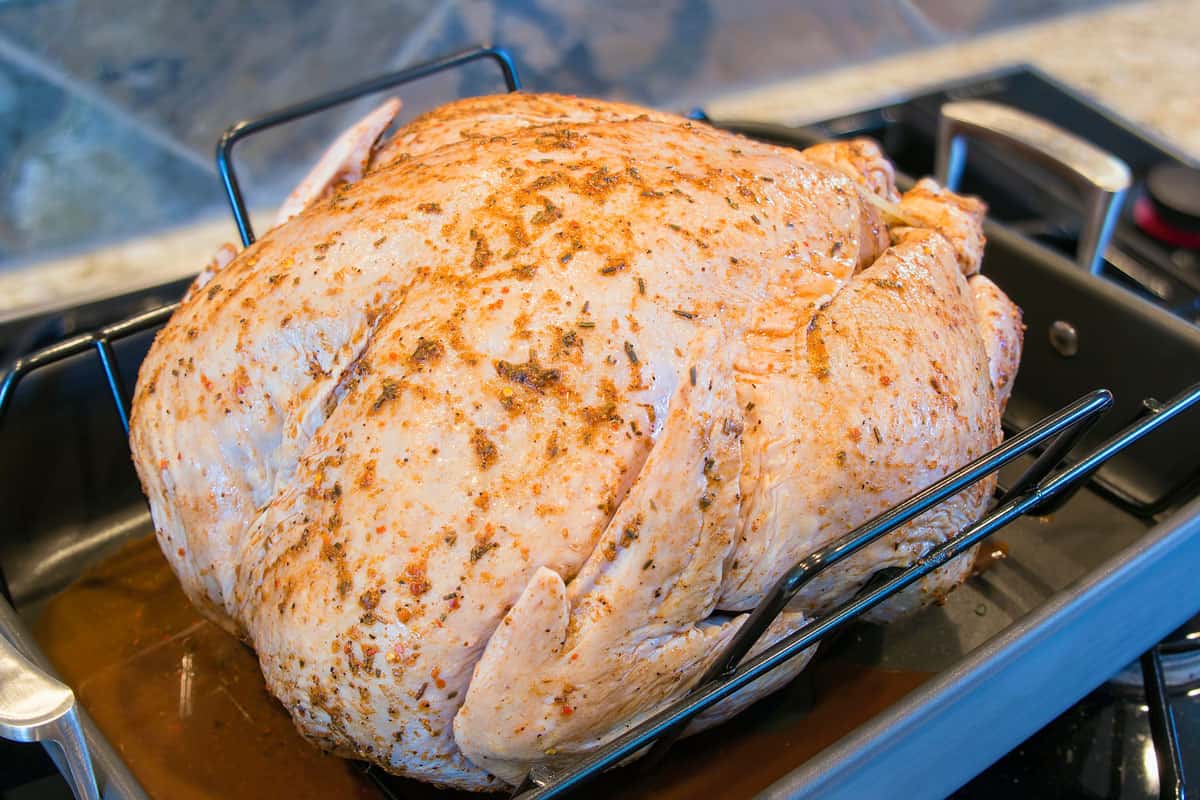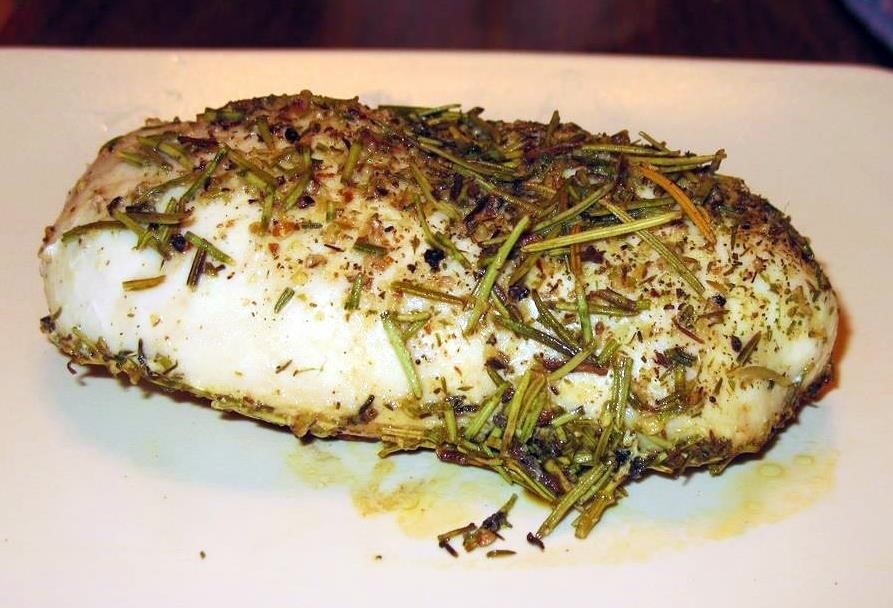Brining is a popular way to help keep turkey moist and flavorful when cooking it. It involves soaking the raw turkey in a saltwater solution, allowing the brine to permeate the meat. But what if you want to brine your turkey in advance and then freeze it for later? Is this safe and effective?
The short answer is yes, you can absolutely freeze a brined turkey! However, there are some important steps to follow for best results. In this article, I’ll provide a complete guide to successfully freezing a brined turkey
Overview of Brining Turkeys
Before getting into freezing, let’s quickly go over the basics of brining. The brining process works by dissolving salt into the meat, which allows the turkey to retain more moisture when cooked. This helps it stay juicy and tender.
To brine a turkey, you simply submerge it in a mixture of salt, sugar, and aromatics diluted in water. Typical brining times range from 12-24 hours in the refrigerator. Once brined, pat the turkey dry and you’re ready to cook it right away per your normal roasting method.
Brining does take some advance planning since the turkey needs to soak overnight But the benefits to flavor and texture are worth the extra time.
Is It Safe to Freeze a Brined Turkey?
Yes, it’s perfectly safe to freeze a raw turkey that has been brined. The brine has sufficiently permeated the meat within the 24 hour timeframe before freezing.
Freezing stops any further brining action from occurring. So you don’t have to worry about the turkey becoming overly salty or the texture changing with extended freezing.
As long as proper food safety steps are followed, there are no safety risks to freezing a brined turkey.
How Long Can a Brined Turkey Be Frozen?
A brined turkey can safely remain frozen for up to 6 months.
The quality will start to degrade after this point. Freezer burn or “freezer flavor” from dried out meat may become apparent in the taste and texture.
For best flavor and texture, aim to cook a frozen brined turkey within 2-3 months. But up to 6 months is still safe, the turkey just may not be at peak quality if frozen for that long.
Does a Brined Turkey Need to Be Thawed Before Cooking?
You can cook a brined turkey directly from frozen if needed, but thawing first is recommended.
Thawing allows any ice crystals that form during freezing to re-absorb back into the meat. This helps maintain moisture and texture.
Plan ahead so you have time to thaw the turkey gradually in the fridge over 24-48 hours. Avoid thawing at room temp, as this increases risk of bacterial growth.
If short on time, you can do a cold water thaw submerging the turkey in its packaging to speed up the process. Change the water every 30 minutes until thawed.
Step-By-Step Guide to Freezing a Brined Turkey
Follow these simple steps for successfully freezing a brined raw turkey:
-
Brine the turkey: Make your brine, submerge turkey, and brine in the refrigerator for 12-24 hours.
-
Remove turkey from brine: Once brined, remove turkey from the brine solution and thoroughly pat dry with paper towels both inside and out.
-
Prepare for freezing: Place turkey in a sealable freezer bag, pressing out all the air. Or wrap tightly in plastic wrap to prevent freezer burn.
-
Freeze turkey: Place wrapped turkey flat in the freezer. Freeze for up to 6 months.
-
Thaw turkey: When ready to use, thaw brined turkey gradually in the refrigerator over 24-48 hours.
-
Cook as usual: Roast the brined turkey as you normally would!
And that’s it – very simple. The brined turkey is now ready to be frozen. Just be sure to label the package with the date before freezing so you know how long it’s been stored.
Frequently Asked Questions
Here are answers to some common questions about freezing brined turkeys:
Should you rinse a brined turkey after thawing?
No, there is no need to rinse a brined turkey after thawing. The salt from the brine stays embedded in the meat, so rinsing will not reduce the saltiness.
Can you refreeze a thawed brined turkey?
It’s best not to refreeze a thawed turkey if it has been at fridge temp for over 2 days. At that point, re-freezing may pose food safety risks.
Does brining help a frozen turkey?
Yes! Brining a turkey before freezing helps lock in moisture and seasoning. The brine will penetrate while frozen over the long-term storage.
How long does a brined turkey last in the fridge?
An uncooked brined turkey will last 1-2 days in the refrigerator. Cook within this timeframe for best flavor and food safety.
Can you bake a frozen brined turkey?
Yes, a frozen brined turkey can go straight into the oven without thawing first. Just allow 50% more cooking time.
Key Takeaways on Freezing Brined Turkey
Brining a turkey before freezing is absolutely safe and effective. Follow proper guidelines to maximize quality:
- Brine turkey fully submerged for 12-24 hours
- Pat dry thoroughly before freezing
- Freeze for up to 6 months
- Thaw gradually in fridge before cooking
- Roast turkey as desired once thawed
With the right technique, you can enjoy delicious home-cooked turkey any time of year with a frozen brined turkey on-hand!

It’s a Time-Saving Step
Think back to any recipe youve ever used that included some kind of poultry—chicken, turkey, Cornish game hen, and so on. Unless the recipe involves some kind of marinade, the first step (and first rule of thumb) is to properly season your protein, or to salt it well. Weve all been around long enough to know that an unsalted chicken breast is dry, bland, and wholly uninteresting. So salting is a step that cannot be skipped.

But salting before freezing the chicken, if you buy in bulk like I do, cuts that step out of each recipe. Not only does it save you a bit of time, but it also lessens the chance of exposing your counter and kitchen workspace to salmonella if youre cooking the piece whole. (Using previously-salted meat also saves you from having to wash your hands after handling the chicken as a preventative measure.)
It may not seem like a lot of time saved, but from personal experience, doing as much prep work in advance makes the actual cooking portion of the meal much easier and less stressful.
It Produces Juicier Meat
And as weve discussed here on Food Hacks before, brining is an excellent way to retain moisture via osmosis. But salting your poultry before freezing it goes a step further—because it gives salt a longer time to affect the moisture retention of the meat.
Cooks Illustrated conducted a trial that tested the amount of moisture lost (by weight) between chicken breasts that had been salted or brined prior to freezing, salted or brined after defrosting, or untreated. In the end, the chicken that had been salted before freezing only lost 11%, whereas the chicken that had been salted after defrosting lost 16%. (The chicken that was completely untreated by salt, for comparison, had 22% moisture loss!) These results concluded that salting before freezing was the best method for preventing moisture loss, even over brining after the chicken was defrosted (20% moisture loss).

Helen Rennie of Beyond Salmon did a more informal test and had similar results; she found out that meat that was salted prior to freezing left significantly less water in the freezer bag than the unsalted meat.
Salting your poultry before freezing it, especially when bought in-bulk, is more convenient up front, more efficient when cooking, and creates a juicier, well-flavored meat. If youre not already incorporating this into your post-grocery shopping routine, I think you should reconsider.
